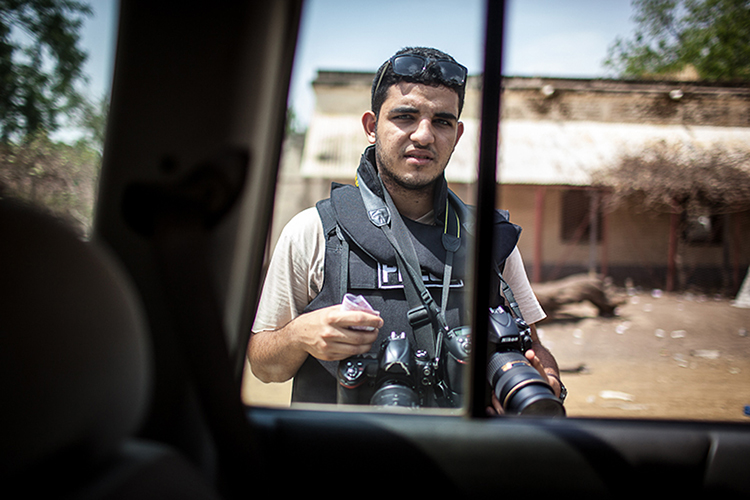To highlight the work of journalists living in exile, CPJ is collaborating with a group of photojournalists, who will take over our Instagram account to share their work, often from the very assignments that forced them to flee. As CPJ’s Journalist Assistance Program Coordinator and someone with a background in photography, it is project that I feel passionate about and personally connected to.
I have never been a professional photographer, yet photography and its capacity to transcend boundaries of language and to connect people from across the world have underscored everything I’ve done.
The photographers who first informed my love for documentary work were celebrities as far as I was concerned. This group of professionals were mostly Western photojournalists covering conflict and human rights issues.
They have a job that is demanding, often dangerous, usually not very lucrative, and which requires a significant amount of travel. But when a dangerous assignment is over, the international journalists can leave and return home.
My current work introduced me to local photojournalists around the world, who inspire me for all the same reasons, but even more so because they have more to lose. In my role as CPJ’s Journalist Assistance Program Coordinator, I usually encounter these local journalists because they are in trouble as a result of their work.
I know too many journalists who have been forced into exile because the threats they face in their home country are too severe to warrant staying. Unlike international journalists who move about freely, the local photographers have no other option than to leave behind their homes, and often their families, to start over in a new country with nothing.
These journalists cover everything from the conflicts in the Middle East and land-grabbing issues in East Africa, corruption in Eastern Europe and extremists in South Asia. Their commitment to journalism, despite knowing the risks, is humbling.
The LensInExile series is a chance to highlight these journalists’ work and the risks they are willing to take. It is also an opportunity for them to describe the conditions they faced in their home countries.
Mohammed Elshamy, who left Egypt in 2014, opens the series. Elshamy told me that by the time he realized that he needed to leave his home country if he wanted to continue his work, police had arrested him twice and jailed his brother, Abdullah Elshamy, who is also a journalist. It was while visiting his brother in prison that Elshamy met Mahmoud Abou Zeid, the Egyptian freelance photographer and CPJ’s 2017 International Press Freedom Award honoree known as Shawkan, who has been imprisoned since 2013 for covering unrest.
“In times like these, the world needs brave photojournalists who risk their lives with selfless intentions,” Elshamy told me. “We might get arrested, abducted, traumatized or even killed, yet we continue to document the world’s tragedies and to document the truth.”
Photography has the power to be divisive and sometimes makes for difficult viewing. For the journalists taking part in the Instagram takeover, it was the reaction from authorities or others to the images they captured–often while covering controversial issues–that caused them to flee.
The point of LensInExile is not to make political statements or upset people with the content shared. Rather, we hope that our followers gain perspective of the press freedom violations these journalists faced and the extreme risks they came up against because of their job. Each of the photojournalists involved has been targeted because someone wanted to prevent them from covering a particular issue or was angered by the critical work they produced. LensInExile is a way to show the work others tried to silence them for.
- LensInExile will showcase work by photojournalists in exile from around the world. Photojournalists will take over CPJ’s Instagram account @CommitteeToProtectJournalists to share work from their home country, often from the assignments that forced them to have to flee.
(EDITOR’S NOTE: The first six paragraphs of this blog post have been updated for clarity.)
